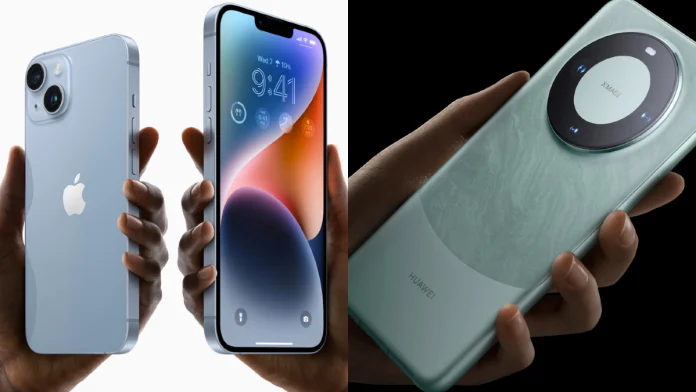In a recent turn of events, China has imposed a surprising ban on its central government employees from using iPhones due to security concerns. This move has triggered a 6.4% drop in Apple Inc’s stock value over just two days. The ban is seen as the latest development in the ongoing US-China tech war, possibly aimed at promoting Huawei’s new Mate60 Pro phone over the iPhone in local markets.
China’s government has ordered its officials to refrain from bringing iPhones into the office or using them for work, as reported by the Wall Street Journal on September 6. Speculation suggests that these bans might extend to state-owned enterprises (SOEs) in the near future. This ban coincides with a media campaign by Chinese state media to promote Huawei Technologies’ Mate60 Pro, equipped with Kirin 9000s, a 7-nanometer chip produced by the local Semiconductor Manufacturing International Corp (SMIC).
Lyu Tingjie, a professor at Beijing University of Posts and Telecommunication’s School of Economics and Management, hailed the Kirin 9000s launch as a milestone for China’s chip sector, narrowing the technology gap with the West to approximately three to five years.
Apple is scheduled to unveil its latest iPhone 15 model on September 12, while Huawei will hold a marketing event for the Mate60 Pro on the same day. The A17 chipset inside the new iPhone is expected to be a 3nm processor, significantly more advanced than the 7nm processors.
US Representative Mike Gallagher, chair of the House Select Committee on China, called on the US Commerce Department to halt all technology exports to Huawei and SMIC on September 6. The US Commerce Department responded the following day, expressing the need for more information regarding the Mate60 Pro’s purported 7nm chip.
The Chinese Foreign Ministry has emphasized that US sanctions against Chinese firms will only bolster China’s drive for self-reliance and technology innovation. However, this marks a shift from previous years when China refrained from banning iPhones due to the substantial production of Apple products in the country.
The ban on foreign-branded phones, including iPhones, for central government agencies aims to reduce China’s reliance on foreign technology, strengthen cybersecurity, and prevent sensitive data leakage. Some experts view this as a retaliatory measure against US sanctions on Huawei.
Hu Xijin, former editor-in-chief of the state-run Global Times, noted the potential negative impact on both countries’ commercial interests and highlighted the larger scale of American electronic product usage in China compared to Chinese products in the US.
While the US-China tech war intensifies, there is hope for cooperation on global challenges such as climate change, epidemic control, and social development issues. However, the tensions underscore the importance of technological development in both countries and its potential impact on their national destinies.
In summary, the ban on iPhones in Chinese government offices reflects the escalating US-China tech war, with implications for both nations’ technological and economic interests.



